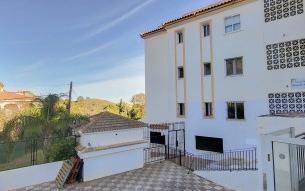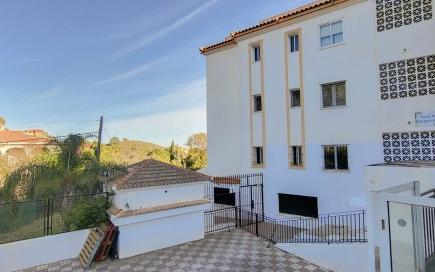
Both moving house and relocating to Spain can be expensive, so many Spanish homeowners look for ways that they can reduce their expenses when they arrive in the country. One of these bills that you may be able to reduce is your IBI tax (also known as property tax or council tax) which can vary wildly from province to province, and is charged annually. Here’s everything you need to know about IBI property tax, and the potential reductions you can secure while you're searching for that dream property in Spain.
What is IBI Property Tax?
IBI stands for Impuesto sobre Bienes Inmuebles: this translates to mean a ‘tax on property goods’ and you may also hear it referred to as SUMA tax. It is not a national tax, but rather one that is set and payable locally. All property owners in Spain have to pay their IBI property tax annually, and the rate that your IBI tax is set at will serve as a benchmark for all other property-related taxes in the country, which explains why it is so important to ensure your IBI value is correct.
The amount of IBI you will have to pay varies considerably between municipalities in Spain, as each individual townhall sets the amount. Malaga provides a great example of this, will homeowners in Torremolinos, Cártama and Rincón paying approximately 400 euros less in IBI tax than the owners of identical homes in Malaga city.
How is IBI Property Tax Calculated?
Nationwide, the amount of IBI property tax you will be is calculated as a percentage of the cadastral value of your property: this is the value of your property that is kept as a matter of public record. Whilst the word cadastral may be new to you, when you own property in Spain they are words you will hear a lot! Cadastral is effectively the land registry and they will periodically revalue your property, changing that figure on official records. It is predicted that 90 percent of properties in Spain will be subject to this kind of revaluation in 2021.
The valor cadastral (land registry value) of a property is determined by its location, size, the value of the land, the land’s urban characteristics, the material cost of the building and its age, among other factors. This figure is hugely important because so much of your annual expenditure will depend on it: in terms of your IBI tax, the law dictates that municipalities can only charge between 0.4 percent and 1.1 percent of the value of the property as your IBI figure, although this can be increased to 1.3 percent in provincial capitals that offer a wider range of services and amenities. The amount of IBI property tax you will pay, then, will depend on both where you live and on the size and value of the property that you are living in.
How Can I Pay Less IBI Property Tax?
Despite it being a fairly fixed figure, it is possible to pay less IBI Property tax. In order to achieve this, you should use your 20 digital cadastral reference number to check what value has been assigned to your property. If you feel that this value is too high, or notice any other discrepancies, then you can use this to have your property revalued, which will ultimately mean that you pay less IBI tax.
If you cadastral value is above your property value then that is not unusual, but if the difference is incredibly wide then the town hall may well allow you to invest in a reassessment. You will need to enlist the help of a legal professional in order to assess whether or not it’s possible to make this kind of claim: the paperwork will be extensive, as there is so often plenty of bureaucracy involved in this kind of process in Spain! Whilst it is technically possible to undertake this alone, it isn’t an easy process and therefore going solo isn’t recommended.
Thing you are paying too much though? It’s definitely worth persuing. The difference can be reimbursed retroactively for the excess that you have been paying over the years, and having a lower cadastral value on your property will also impact the amount you will pau for other property-related taxes.
Other Options
Other, potentially more straightforward, ways to shave a few more euros off your annual IBI property tax bill are outlined below:
- Pay by direct debit. Many municipalities will offer a five percent discount for homeowners that pay annually and via an automatic payment.
- If you are a single parent family, or a large family with more than three children, this will entitle you to a discount of up to 90 percent on your IBI bill, so it is worth discussing this with your town hall if either of these criteria apply.
- In certain municipalities, if you install solar panels on your home then this may also entitle you to an IBI bill discount.
- If you live in social housing then this may also entitle you to a 50 percent discount on your IBI for the first three years that you are living in that property: additional discounts may apply as your time in your home continues, depending on where you live: it is always worth checking this.
- Finally, because of the coronavirus crisis some municipalities are offering struggling residents big discounts on their IBI too. This includes residents that have lost their jobs or had their income affected by the crisis.
Effectively, if you’re looking for a discount on your IBI property tax then your muncipality town hall is a great first port of call, and will be the best place to discover more about the kinds of discounts that may be available to you.
Are you thinking of buying a property in Spain? Whether you’re looking for an apartment or a villa, a permanent move or a holiday bolt hole, or locally based property experts are perfectly placed to help. Why not get in touch with the team to find out more about all the ways that we can help you.

 English
English Español
Español Deutsch
Deutsch Français
Français Svenska
Svenska Nederlands
Nederlands Italiano
Italiano Norsk
Norsk Русский
Русский


































